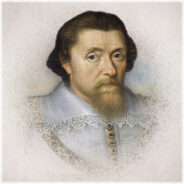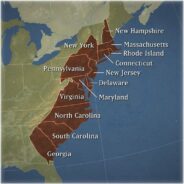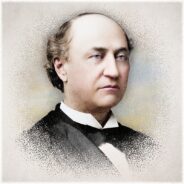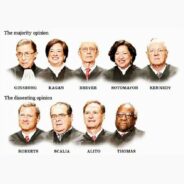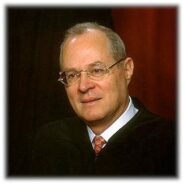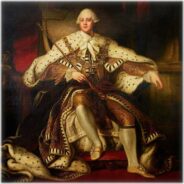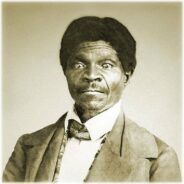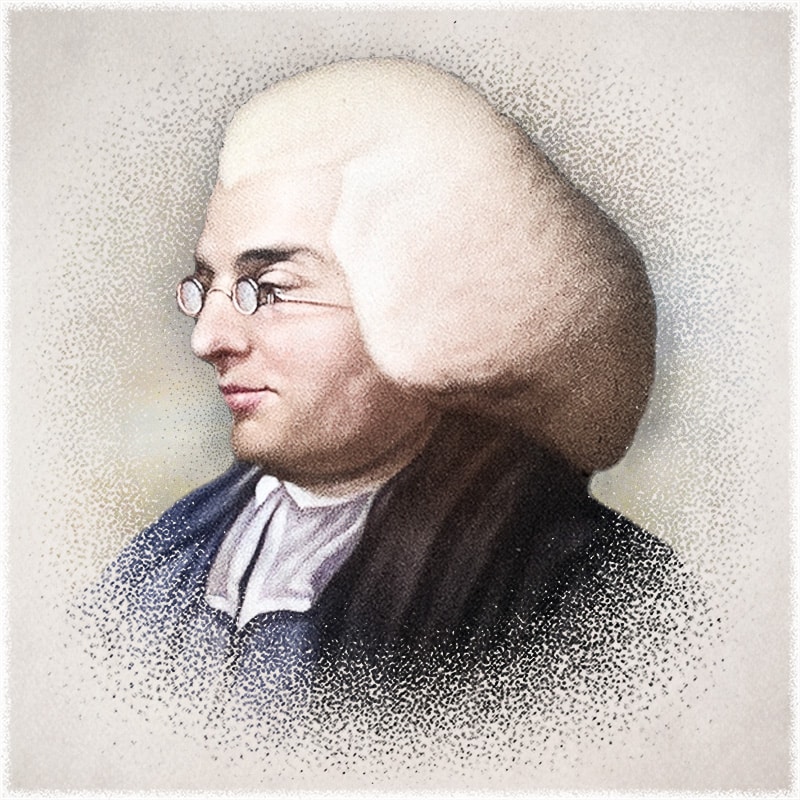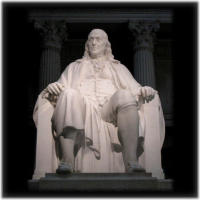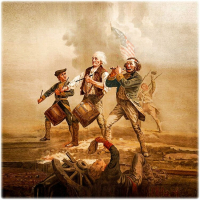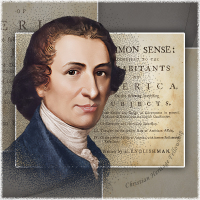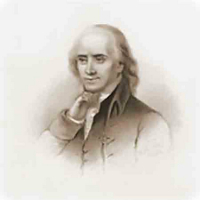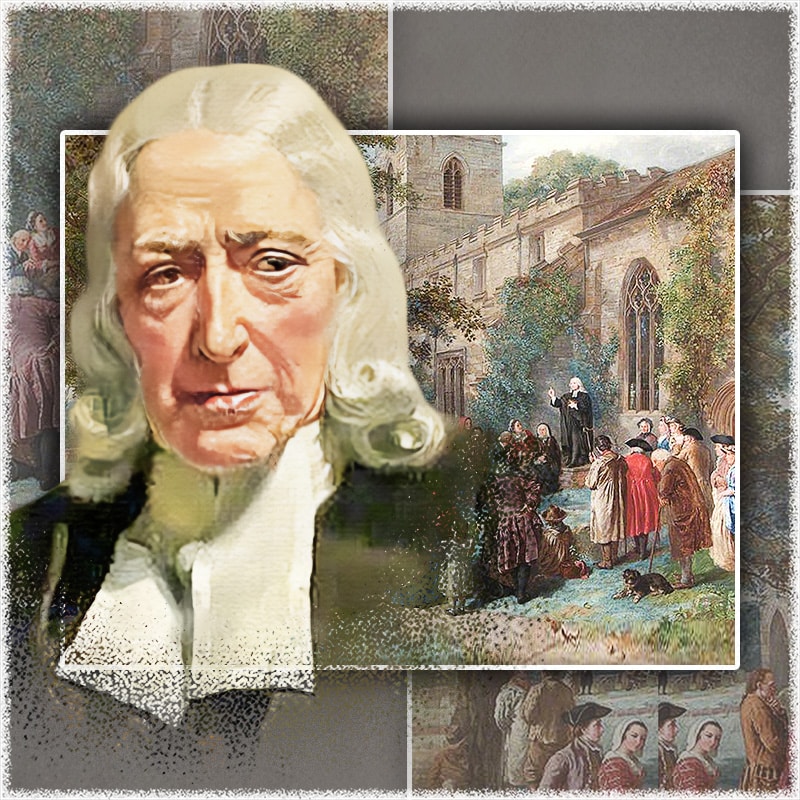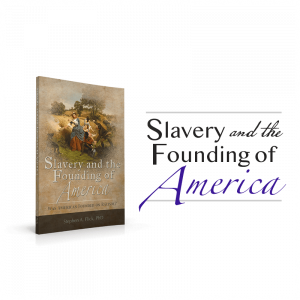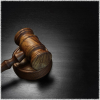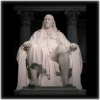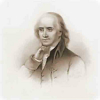Kim Davis Upholds American Law

- 200
- 200shares
On June 26, 2015, five members of the United States Supreme Court rendered a majority decision, in the case of Obergefell vs. Hodges, that same-sex couples were guaranteed a right to marry under the Fourteenth Amendment to the United States Constitution. Until recent decades when militant same-sex advocates violently coerced the compliance of many, Western civilization had denied social approval and recognition to same-sex relationships. With this fact firmly fixed in human history, it is remarkable to imagine that five justices presumed to set aside what all of Western civilization has recognized as fundamental to human society, but then, this decision was only one of a long list of cases upon which the Supreme Court and lower courts have flexed their judicial activism.
Following the Obergefell vs. Hodges decision of the five justices, eighteen counties in three states—Alabama, Kentucky, and Texas—continued to grant licenses to same-sex couples. In Alabama, eleven counties stopped issuing marriage licenses altogether rather than issue them to same-sex couples, as did Kim Davis in Rowan County, Kentucky.[1]
On September 3, 2015, David Bunning—son of well-known baseball player, Jim Bunning—federal judge of the United States District Court for the Eastern District of Kentucky remanded Kimberly Jean "Kim" Bailey Davis to the Carter County Detention Center in Grayson for refusing to issue marriage licenses to same-sex couples. Kim remained incarcerated until September 8 when she was released with the provision that she not interfere with the issuance of marriage licenses.
While 2016 Democratic presidential candidates have appeared all too eager to allow the political machine to steam roll Kim Davis, most Republican presidential candidates have also thrown Kim under the bus. But to their credit, Governor Mike Huckabee and Senator Ted Cruz have come to her defense, despite the charge of "grand-standing" from fellow Republican, Governor Chris Christie. Contrary to the claims of Democrats on the left and moderate Republicans who straddle the fence between truth and error, Kim Davis—against the Supreme Court—is the one who upholds the foundation of American law.
Article Contents
Senate Affirms Christian Heritage
House of Representatives Affirms Christian Heritage
Supreme Court Affirms Christian Heritage
At the heart of the issue to allow same-sex marriage in all fifty states is the failure to demonstrate continuity with three hundred and fifty years of American legal tradition. Before the very first English explorers or settlers set foot on English soil, English monarchs granted both patents and charters that were clearly dependent upon Christianity. A request to settle in the New World was granted by King James I to the Virginia Company on April 10, 1606 for the sake of propagating the Christian religion. The King's Charter stated:
We, greatly commending [the request of the Virginia Company], and graciously accepting of, their desires for the furtherance of so noble a work, which may, by the providence of Almighty God, hereafter tend to the glory of his Divine Majesty, in propagating of Christian religion to such people, as yet live in darkness and miserable Ignorance of the true knowledge and worship of God, and may in time bring the infidels and savages, living in those parts, to human civility, and to a settled and quiet Government.[2]
From the earliest settlers, down through the middle of the twentieth century—a period of nearly three and a half centuries—American law clearly remembered and reflected the Christian origin of America. Not only did all of the charters of all of the original Thirteen Colonies contain clear statements of this heritage, but their state constitutions upon the signing of the Declaration of Independence did as well.
Senate Affirms Christian Heritage
The generations that followed the birth of America as an independent nation also remembered their Christian heritage. Numerous examples could be cited to demonstrate this truth, but the following quote should sufficiently convince any judicious reader. On January 19, 1853, the senate adopted the following report, which was a defense of the use of chaplains:
This results from the fact that we are a Christian people—from the fact that almost our entire population belong to or sympathize with some one of the Christian denominations which compose the Christian world.[3]
House of Representatives Affirms Christian Heritage
Likewise, the House of Representatives' Committee on the Judiciary rendered similar findings on a report on March 27, 1854. In the report they noted an important fact that most of the states had instituted state churches:
At the adoption of the Constitution, we believe every State—certainly ten of the thirteen—provided as regularly for the support of the Church as for the support of the Government: one, Virginia, had the system of tithes. Down to the Revolution, every colony did sustain [the Christian] religion in some form. It was deemed peculiarly proper that the religion of liberty should be upheld by a free people. Had the people, during the Revolution, had a suspicion of any attempt to war against Christianity, that Revolution would have been strangled in its cradle. At the time of the adoption of the Constitution and the amendments, the universal sentiment was that Christianity should be encouraged, not any one sect [or denomination]. Any attempt to level and discard all religion [or all Christian denominations] would have been viewed with universal indignation. The object was not to substitute Judaism, or Mohammedanism [Islam], or infidelity [such as atheism, agnosticism, or deism], but to prevent rivalry among sects [or Christian denominations] to the exclusion of others.[4]
Supreme Court Affirms Christian Heritage
Not only has the United States Congress affirmed the Christian origin of America, but the Supreme Court—acting in accordance with the entire history of America—has also registered its opinion in the matter. After presenting nearly ninety proofs or pieces of evidence to defend the opinion of the Supreme Court in the case of Holy Trinity vs. The United States (February 29, 1892), Justice David Brewer—writing the opinion for a unanimous court—reaffirmed what was already universally recognized:
These [proofs], and many other matters which might be noticed, add a volume of unofficial declarations to the mass of organic utterances that this is a Christian nation.[5]
Judicial Activism Trumps American Law
Nothing could be more satisfying to the ears of the five Supreme Court justices who allowed same-sex marriage than to hear those who oppose Kim Davis say, "She must submit to the rule of law." But the fact is that this ruling and many similar rulings by many leftist anti-American judges over the last six decades have set aside American law!
American judges—and jurisprudence in general—prior to the mid-twentieth century universally recognized the moral and legal influence Christianity exercised upon America, but in 1947—in the case of Everson vs Board of Education—Justice Hugo Black—writing the majority opinion—initiated a complete reversal of America's three-and-a-half century legal tradition. Evoking Thomas Jefferson's affirmation that the federal government would not hinder public Christian observances,[6] Justice Black reinterpreted Jefferson's expression of "wall of separation between church and state" to mean that Christianity was not permitted to have any influential role in public life. Never had Jefferson's expression been interpreted this way, but always interpreted in the manner Jefferson had intended—that the federal government should exercise no role in limiting the public expression of Christianity. States intended to retain the right to have state churches. The federal government's overreach into religious matters within individual states was a violation of states' rights. The usurping of states' rights and the Christian legal heritage of America by the federal government began with Justice Black and this 1947 case.
Subtle, yet profound, confessions acknowledging judicial defiance of the Constitution ensued in Supreme Court decisions throughout the decades that followed Justice Black's opinion. The average citizen may be hard pressed to discern the Supreme Court's acknowledgments that it was violating the Constitution and the history of American jurisprudence, but they were there nevertheless. Those confessions were offered in the form of failure to provide historical legitimacy for their decisions. Whereas Justice David Brewer offered nearly ninety proofs of the Christian origin and Christian legal tradition of America in the case of Holy Trinity vs The United States, the Supreme Court—beginning with Justice Black in 1947—subsequently failed to supply the historical evidence to support its rulings that denied school prayer, Bible reading, the posting of the Ten Commandments, the displaying of nativity scenes, and many other similar public Christian expressions. Not only did Justice Black completely distort Thomas Jefferson's 1801 letter assuring the Baptists of Danbury, Connecticut that the federal government would not interfere with public expressions of their faith, but subsequent generations of Supreme Court justices have been emboldened to offer no historical proof whatsoever to justify their wayward decisions—as was the case with school prayer in 1962. Following the same pattern of judicial activism, the majority opinion of Justice Anthony Kennedy in the Obergefell vs. Hodges also failed to demonstrate continuity with the three-hundred-fifty years of American law prior to 1947.[7]
How America Has Dealt with Judicial Activism
The first of the twenty-seven charges America's Founding Fathers made against King George III in the Declaration of Independence was the charge of lawlessness; they said: "He has refused his Assent to Laws, the most wholesome and necessary for the public good." Throughout the remaining twenty-six charges, four references are made to the abuse of the judiciary under the direction of King George. The most important concern to the Founding Fathers was not an economic issue, but one that concerned a true and accurate application of just laws. Four times in the charges made against King George in the Declaration of Independence, reference was made to the abuse of the courts in America over which the King's judges ruled. To correct these abuses, the Founding Fathers were willing to lay down their lives so that succeeding generations of Americans would not have to live under the heel of tyranny.
Throughout the history of America under the Constitution (from 1789), the Supreme Court has been the most unpredictable and irresponsible of the three branches of government. Not until the last half of the twentieth century has the Supreme Court been accorded an equal and superior role to the other two branches of American government. Prior to 1947, presidents and congress acted to nullify the lawlessness of the Supreme Court. One of the most vivid examples of this is Abraham Lincoln's disregard for the Supreme Court's decision concerning the Dred Scott case (1857). Republican Abraham Lincoln's nullification of a Democratically controlled Supreme Court paved the way for the end of slavery. America may rightly applaud Lincoln for nullifying the Supreme Court's lawless overreaching—a trait that has plagued the history of the Supreme Court.
Further evidence of the lawlessness of the Supreme Court could be detailed concerning its neglect of America's Organic Law.[8] In fact, it may be demonstrated that since 1947, the Supreme Court has run roughshod over the fundamental documents of America with little or no rebuke from the other branches of government. However, the breadth of this subject is far too detailed for the scope of this article. It is sufficient to say that since 1947, the Supreme Court has not taken seriously the Organic Law of America that has had a place in American legal opinions since 1776 when the first of these Organic Laws—The Declaration of Independence—was written!
Conclusion: Clergy Call for Rebellion
At the heart of Kim Davis' protest is the same as the protest voiced by America's Founding Fathers: "Should we obey God's laws or man's laws?" Many decisions handed down by the Supreme Court over the last six decades have violated the legal history of America, and with the decision of five justices in the case of Obergefell vs. Hodges, Americans are being compelled to violate God's laws to accommodate a minority of the population.
On July 20, 1775, the Second Continental Congress proposed a resolution calling for a public day of fasting, prayer, and humiliation. The members of Congress gathered at the state house and then proceeded as an entire body to Christ Episcopal Church—known as "The Nation's Church" for the important role it played in the birth of America. Here the pastor and chaplain of Congress, Rev. Jacob Duche, preached a sermon titled, "The American Vine"; Later in the day, members of Congress assembled to hear another sermon by the assistant minister, Thomas Coombe, which was dedicated to Benjamin Franklin, and later in November, they assembled to hear another assistant to Rev. Duche, Rev. Dr. William White. In his sermon, "Submission to Civil Disobedience," Dr. White counseled the members of Congress that if civil authority superseded the will of God, then resistance was necessary. Dr. White later became chaplain to Congress.
The idea of obedience to God rather than the tyrannical rule of man was such a compelling idea to America's Founding Fathers that Benjamin Franklin suggested the expression, "Rebellion to tyrants is obedience to God" for the great seal of the United States. However, it was not used, and Thomas Jefferson, who was so taken by the expression, incorporated it into his personal seal, and while governor of Virginia had a bronze medal struck with the same motto.
Kim Davis now stands in the tradition of America's Founding Fathers: "Rebellion to tyrants is obedience to God."
America deserves to know its true heritage.
Please contribute today!
To view an annotated reading list of relevant materials concerning American history and the influence of Christianity upon the formation of the United States, please click the message box below.
Please click this message box to navigate to America: A Suggested Reading List.[1] "Kim Davis (county clerk)," Wikipedia (https://en.wikipedia.org/wiki/Kim_Davis_%28county_clerk%29, September 9, 2015).
[2] "The First Charter of Virginia; April 10, 1606," Yale Law School, Lillian Goldman Law Library (http://avalon.law.yale.edu/17th_century/va01.asp, September 9, 2015).
[3] Quoted in Morris, Benjamin F. The Christian Life and Character of the Civil Institutions of the United States 2nd ed. (Powder Springs GA: American Vision, 2007), 394.
[4] Quoted in Morris, Benjamin F. The Christian Life and Character of the Civil Institutions of the United States 2nd ed. (Powder Springs GA: American Vision, 2007), 386-387.
[5] See our article: "Supreme Court Declares America a Christian Nation," Christian Heritage Fellowship (https://christianheritagefellowship.com/supreme-court-declares-america-christian/, September 9, 2015); The United States Supreme Court Vs. Holy Trinity Church v. U.S. 143 U.S. 457, 12 S.Ct. 511, 36 L.Ed. 226 Feb. 29, 1892, http://supreme.justia.com/us/143/457/case.html, November 21, 2011.
[6] The expression "separation of church and state" used by Thomas Jefferson in a letter to the Danbury Connecticut Baptists (January 1, 1802) was clearly intended to mean that the federal government would not hinder Christianity.
[7] Kennedy's opinion provided an appeal to the Fourteenth Amendment, suggesting that those who passed this Amendment intended it to be broader than stated. However, this is the root of judicial activism—reading into the law rather than allowing the law to speak for itself. This is eisegesis rather than exegesis—a perversion of the text of the law!
[8] As it is applied to government, the expression "organic law" is used to describe a law or system of laws that are regarded as fundamental or foundational to all other laws. The Organic Laws of America may be found in the first volume of The United States Code. There are four documents that comprise the Organic Laws of the United States: the Declaration of Independence (1776); the Articles of Confederation (1777); the Northwest Ordinance (1787); and the United States Constitution (1789).
Kim Davis
Kim Davis
Kim Davis
Kim Davis
Kim Davis
Kim Davis
Kim Davis
Kim Davis
Kim Davis
Kim Davis
Kim Davis
Kim Davis
Kim Davis
Kim Davis
Kim Davis
Kim Davis
Kim Davis
Kim Davis
Kim Davis
Kim Davis
Kim Davis
Kim Davis
Kim Davis
Kim Davis
Kim Davis
Kim Davis
Kim Davis
Kim Davis
Kim Davis
Kim Davis
Kim Davis
Kim Davis
Kim Davis
Kim Davis
Kim Davis
Kim Davis
Kim Davis
Kim Davis
- 200
- 200shares


